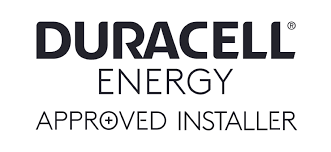Top 5 Common Questions About Air Source Heat Pumps Answered
- Daniel Fifield
- Apr 16, 2024
- 3 min read
Air source heat pumps are a type of heating system that extract heat from the air outside and use it to warm up indoor spaces. They work by absorbing heat from the outside air and transferring it to a refrigerant fluid, which is then compressed to increase its temperature. The heat is then transferred to the indoor space via a heat exchanger.
Air-source heat pumps are becoming increasingly popular due to their energy efficiency and low carbon emissions. They are a great option for those looking to reduce their carbon footprint and save on energy costs. They can also be used for cooling in the summer months by reversing the refrigeration cycle, making them a versatile choice for year-round climate control.
Do I need planning permission?

In most cases, installing an air source heat pump in the UK would be considered a permitted development and would not require planning permission. However, there are certain exceptions and limitations to this rule, such as if the installation would be located in a conservation area or a listed building. It's always a good idea to check with your local planning authority just to be sure.
2. What is the Boiler Upgrade Scheme?

The UK government has introduced the Boiler Upgrade Scheme, which provides financial assistance to homeowners in England and Wales. Under this scheme, eligible homeowners can apply for vouchers worth up to £7,500 to cover the installation costs of air and ground heat pumps.
3. Do I need to upgrade my radiators?

In most cases, it is recommended to upgrade your radiators when installing an air source heat pump. This is because air-source heat pumps operate at a lower temperature than traditional boilers, so your current radiators may not be able to distribute the heat effectively. Upgrading your radiators will ensure that they are optimised for the lower temperature output of the heat pump, and will help to maximise the efficiency of your heating system. However, it's best to consult with a professional HVAC technician to determine the specific needs of your home and heating system.
4. Are heat pumps expensive to run?

Heat pumps are generally more efficient and cost-effective than traditional heating and cooling systems. They work by transferring heat from one area to another, rather than generating heat like a furnace or boiler. This means that they require less energy to operate and can save you money on your energy bills.
However, the cost of running a heat pump will depend on a variety of factors, such as the size of your home, the climate in your area, and how well-insulated your home is. It's always a good idea to consult with a professional HVAC technician to determine if a heat pump is the right choice for your home and budget.
5. Can heat pumps provide hot domestic water?

Yes, heat pumps can provide hot domestic water. In fact, many heat pump systems are designed to provide both space heating and hot water. Heat pumps work by extracting heat from the surrounding air or ground and transferring it to a refrigerant, which is then compressed to raise its temperature. This hot refrigerant is then used to heat water, which can be circulated through a building's heating system or used for domestic hot water. Some heat pump systems even incorporate a desuperheater, which uses excess heat from the compressor to heat water for domestic use.
Get in touch with our heating specialists in Exeter,Devon today for more information!
Book your heat pump survey online today: https://www.neutralenergysolutions.co.uk/booking-calendar/heat-pump-in-person-survey?referral=service_list_widget

.png)
.png)





Comments